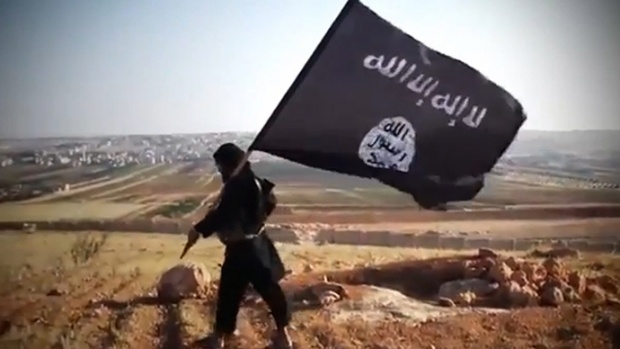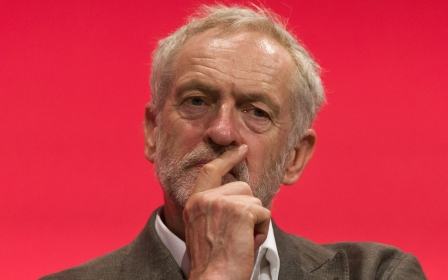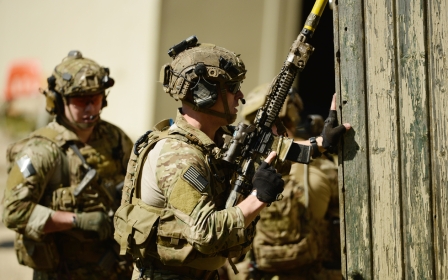Know your enemy to defeat them. A name would be a good start

Look, it might seem like a silly obsession with Arabic pronunciations, but it speaks to something bigger - and more telling.
As the British parliament launched into its 10-hour debate today on whether to launch air strikes against the Islamic State group in Syria, the first thing many noticed was that the prime minister David Cameron and subsequent MPs had all switched to calling the group by its Arabic acronym, Daesh.
And then the next thing we noticed was how nobody could say it properly: we had baffling attempts, like Dash, Die-yesh, Daech and Daeeesh. It got so bad that Middle East Eye, in an attempt both to help the parliamentarians and put the rest of us out of our misery, issued this handy audio guide to pronouncing it properly.
Does it matter? Only in so far as it speaks volumes about how little time our MPs seem to have taken to get to know the language, much less the people or the politics of the place they want to start bombing.
It reminded me of my Iraqi parents, listening to broadcast news about Basra, my father’s hometown, and lamenting how the Brits, post-2003-war, could be positioned there for so long without even bothering to learn how to say it properly.
And the botched Arabic vowels seemed to set the tone for the rest of the debate: mangled, incomprehensible and quite frighteningly incompetent. Oh yes, and juvenile, to boot. The Commons speaker kept trying to restore calm, reminding MPs that “there are millions of people watching the debate” - well, indeed; and many of them were probably wondering whether this really was the mother of all parliaments, the great British bastion of rational, civilised debate they’d heard so much about.
Britain should have been discussing the issue of Syria airstrikes for weeks – but was instead distracted by a media frenzy over divisions between the Labour leader and much of his shadow cabinet over support for military action.
That just left today’s debate - not great, but it was 10 hours long; surely we’d finally see a detailed discussion of the cases for and against military action in Syria?
Not so much. There were impassioned speeches raising important points, of course. Labour leader Jeremy Corbyn did manage, amid the heckling, to set out calm and lucid cases against air strikes. The party’s former deputy, Margaret Beckett, was credited with making a fine speech in favour of the motion.
But reasonable questions weren’t always met with reasonable answers.
So, for instance, the Scottish National Party’s Angus Robertson, asked for clarity on David Cameron’s claim that there are “70,000 moderates” on the ground in Syria: could the prime minister, or anyone else for that matter, assure that some of these weren’t in fact fundamentalists? After a long silence, he was rebuffed by Richard Benyon, the Conservative MP from Newbury, who described this apparently undue concern with necessary opposition forces as a “nit-picking quibbling point”.
To be clear, we’re talking about a crucial part of Cameron’s case for war - if we can’t say who these “moderates" are, how can we say where the military intervention relying on these elements will lead?
And then we had contributions from MPs that seemed, I don’t know, less knowledgeable. Case in point: the Conservative’s Nusrat Ghani, who presented a cascade of non-sequiturs while disputing the point that Islamic State could not be effectively targeted while it lived among a civilian population in Syria’s Raqqa.
She observed that the group, seeking to be a Caliphate, could not be so elusive. "Caliphates cannot exist as underground movements because they are founded upon territorial authority,” she said, adding: "So to destroy it and its pull we must take away its command of territory and to do that we must take military action because Daesh cannot be negotiated with.”
She seemed not to understand the tactical fluidity of the group now taking root in Sirte, Libya. IS is more than the territory it holds.
Other MPs urged Britain not to stand on the sidelines – because, if you’re not bombing, you’re not doing anything, apparently – and talked of serious, honourable decisions. Well, that’s after over a dozen MPs gave up on serious, honourable attempts to persuade the PM to apologise for his comments yesterday, when he described those opposing airstrikes as "terrorist sympathisers".
Britain can be a bit small-island at the best of times – and, of course, a crucial component of the decision to take military action against IS is whether it will counter or exacerbate the terrorism threat posed by the group to the UK. But all this talk of heroism and standing with the international community and Britain’s place in the world – it all seemed as though consideration for the Syrian people, as well as the Iraqis and the wider Middle East, didn’t register nearly enough in this historic debate.
Perhaps all we could expect was a bit of political grandstanding, with nobody really expecting to persuade anyone else with the force of their argument, much less any actual insight or expertise.
But was the debate worthy of this serious issue and its very real, potentially far-reaching consequences? Obviously not. Once again, it looks like we’re rushing into a Middle East military intervention with little idea of why we’re doing it or what it’s going to achieve.
If previous military interventions are anything to go by, the serious debate might start when the damage has already been done. In the meantime, let’s hear you say Daesh again?
Rachel Shabi has written extensively on the Israeli-Palestinian conflict and the Middle East and is the author of the award-winning book, Not the Enemy: Israel's Jews from Arab Lands
The views expressed in this article belong to the author and do not necessarily reflect the editorial policy of Middle East Eye.
Photograph: An Islamic State fighter in Syria (AFP)
Middle East Eye propose une couverture et une analyse indépendantes et incomparables du Moyen-Orient, de l’Afrique du Nord et d’autres régions du monde. Pour en savoir plus sur la reprise de ce contenu et les frais qui s’appliquent, veuillez remplir ce formulaire [en anglais]. Pour en savoir plus sur MEE, cliquez ici [en anglais].




